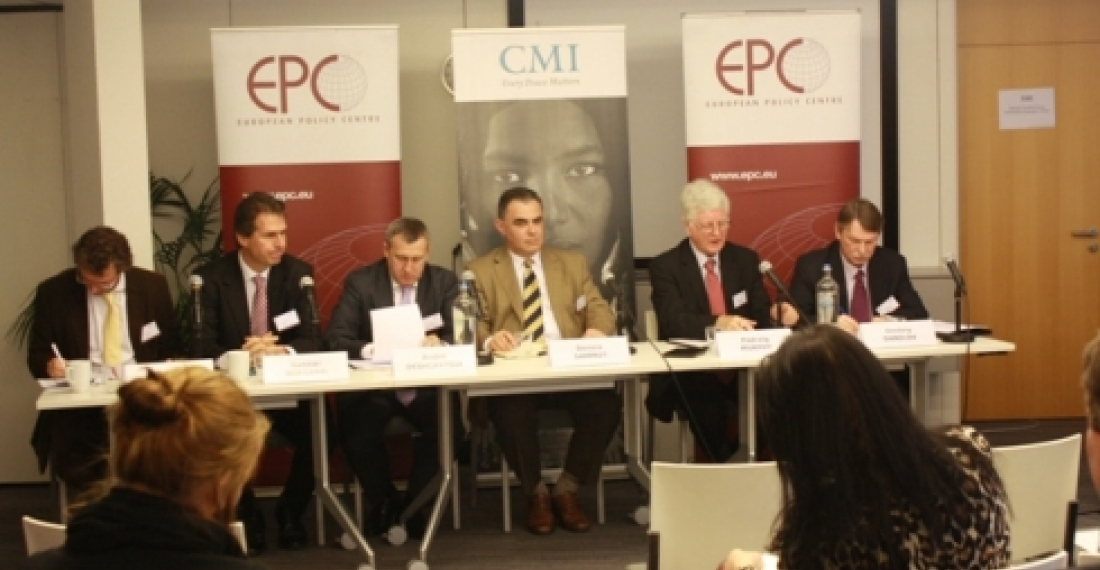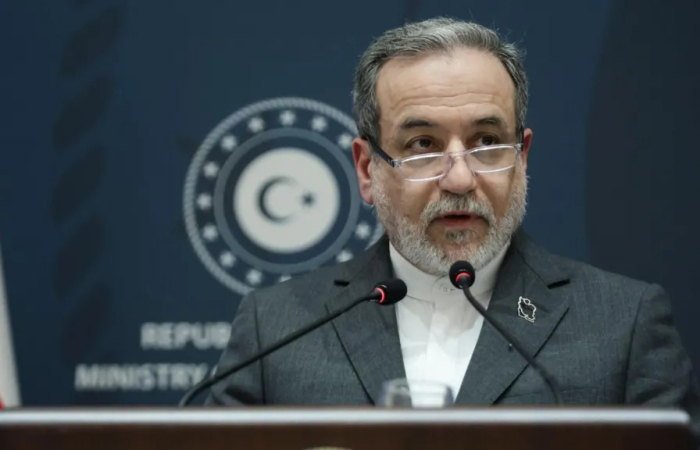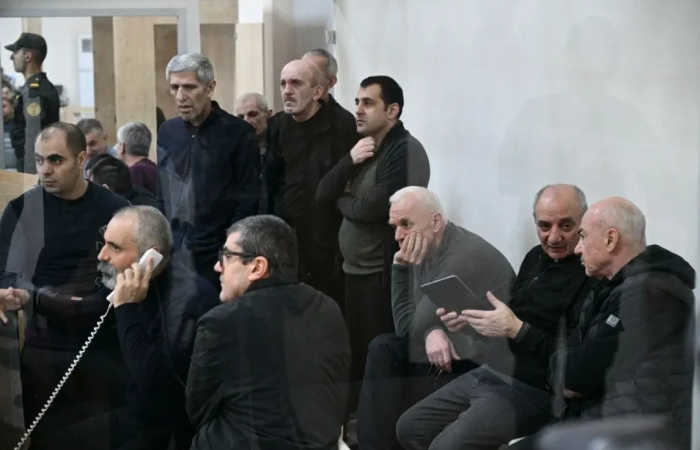It has been twenty years since the Minsk Group was established within the framework of the OSCE to mediate a resolution of the conflict over Nagorno-Karabakh. The group was supposed to prepare the way for the convening of a full conference in Minsk to help bring the conflict to a final resolution. But twenty years later no major breakthrough has been achieved and there is now a call for the Minsk Conference to be convened in any case. It came during a conference focusing on the peacemaking experience of the OSCE which was held in Brussels on Monday, 10 December, and which was opened by the Foreign Minister of Ireland and current Chairman in Office of the OSCE, Eamon Gilmore. More than a hundred diplomats, EU officials, representatives of NGOs think tanks and the media attended the one day event which was organised by the European Policy Centre and Crisis Management Initiative.
The call for the convening the Minsk Conference was made by LINKS Director, Dennis Sammut, when he was speaking on the second panel of the conference which focused on the settlement of the Nagorno-Karabakh conflict. Dennis Sammut spoked about how the Minsk process has evolved over the last two decades and about its failure to achieve any significant breakthrough in its efforts to resolve the Nagorno-Karabakh conflict. He said that the present arrangement involving secret negotiations between the two conflict sides: Armenia and Azerbaijan; and the three co-Chair of the Minsk Process: France, Russia and the United States had become too cosy, with one or the other of the conflicting sides sometimes opting to stop negotiations for long periods of time. On the other hand a process of replacing the Minsk Process with another mechanism will take a long time and will probably be used by the sides for postruing rather to achieve a breakthrough. The international community had therefore to operate within the existing framework. Dennis Sammut said that both the participants and the scope of the negotiations needed to be widened, and it was time to switch on the spotlight on the negotiations since other methods had obviously failed. One way that this could be done was by convening the Minsk Conference.
Dennis Sammut also said that lessons from other conflict resolution processes showed that the political will to compromise does not happen on its own but needs to be induced through sticks and carrots from the part of the international community.
Earlier several participants spoke about the role of the OSCE in peacemaking in the Eurasian area. It was felt that whilst there were many significant contributions, and a few achievements, the overall picture is that the OSCE has a patchy record in this area.
source: commonspace.eu
Photo: The first panel of the conference "The OSCE peacemaking experience: What lessons and challenges for the EU" from left to right: James Nixey (Chatham House), Gunnar Wiegan (Director for Russia, Eastern Partnership, Central Asia, Regional co-operation and OSCE at the European External Action Service); Andreii Deshchytsia (Special Represnetative of the incoming Ukrainian Chairmanship of the OSCE), Dennis Sammut (Director, LINKS), Padraig Murphy (Special Representative of the Irish Chairmanship of the OSCE) and Dimitriy Danilov, (Head of the European Security Studies Department, Institute for Europe, Russian Academy of Sciences.) Picture courtesy of the European Policy Centre.







